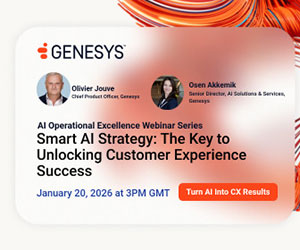Alexandra Hickson explores the key points to creating and maintaining a productive culture in a contact centre of less than 50 seats.
Running a small contact centre may seem a dream to those of you with over 200 advisors passing through your doors every morning, but it is not without its challenges.
Controlling such a small “eco system”, where each voice is that little bit louder and each opinion carries a higher weight, it’s important for managers to keep control of the environment, before the environment controls them!
In Smaller Contact Centres Democracy Is Harder to Control
Involving the team members in decisions that directly affect them gives them the opportunity to shape the culture and environment of their company. This results in maximum buy-in from a group of enthusiastic and valued people.
In smaller centres, democracy can be a little easier to achieve, and it is all the more important to control a spread of negativity.
“Misery Loves Company”
“Misery loves company” is a misnomer; misery needs company. Remember that your negative advisors need others to validate their moans, they need to be heard disagreeing with the latest change, they need to recruit the rest to challenge you, and in a small centre, before you know it, that’s half of your workforce storming.
Therefore, when it is possible to take a democratic approach, e.g. through votes, round-table discussions and pre-mortems, I encourage you to do so!
“Negative Norman” May Still Mutter Under His Breath
You will never please everyone all of the time, and “Negative Norman” may still mutter under his breath, but now the rest of the advisors won’t be brought down to that mindset as they have been heard and have been instrumental in implementing the latest change.
Instigating this “democratic process” means that you can ultimately stay in control of it.
To find out how else listening to the team can help your contact centre, read our article: Involve Agents in Operations and Strategy
Celebrate Those Lower Down the Table
With many different targets and key metrics to achieve, it becomes very easy to only celebrate those at the top of the leader boards, especially when running an outbound sales centre in a company that celebrates success daily.
It is important to give these trail blazers the credit where it is due – they are over-achieving and setting the pace for the rest of the team to follow. However, it is also important to celebrate those lower down the table that are showing material improvement.
A realistic goal for a mid- to low-table advisors isn’t “be number one”, and setting them that target will only demotivate.
A realistic goal for a mid- to low-table advisors isn’t “be number one”, and setting them that target will only demotivate. If we do this we are setting them up for a fail, and in a small centre, resentment could spread very quickly. This resentment could even affect your top hitter personally, with no one wanting to listen to his/her help and advice any more.
Instead, ask your advisors what motivates them. What do they want to attain/earn/achieve? Help them create a bespoke, targeted action plan, with staged goals to aim for.
Be Realistic With What You Ask For
Most recently I brought in a wrap target to reduce the amount of time wasted, something I’m sure we can all relate to, and a few days later, the whole floor, including myself, broke out in rapturous applause for somebody still nearly one hour over the target.
Why? He had reduced his wrap time by half – a great achievement worthy of attention, despite still being over targeted levels.
The key is to be realistic with what you ask for, while you must also discuss with the advisor why you are asking for it, and work together on achieving it.
Having this personal plan can help stop resentment of bigger hitters from forming, and should mean that the ultimate goal is still to be in that number one spot, while the team remain happy to accept advice from the top on how to get there.
For more on contact centre goal setting, read our article: How Do I Set Myself Achievable Goals?
Be the Thermostat, not the Thermometer
I always say “be the thermostat, not the thermometer” of your floor, but sometimes some big personalities can make that a struggle.
Whether your centre is heavily scripted or free and flexible, off the phones you have a melting pot of different personalities.
It is a bit of a lottery as to the combinations of characters you find yourself with, so it’s important to make the most of each individual and get the best out of them. I always say “be the thermostat, not the thermometer” of your floor, but sometimes some big personalities can make that a struggle, especially in a small centre where it’s much easier for them to pull focus.
Let’s say you have someone who needs quite a bit of limelight, the less attention you pay them, the more they may act up to get it.
So, why not try tasking this individual with creating the next game their team will play and let them take the lead in delivering it. You are therefore harnessing their personality type in a way that benefits you and keeps them occupied and heard.
Handling the “Naysayer”
Perhaps another person is a bit of a “naysayer” – they are first to find flaws in your suggestions. Why not meet with them first and ask for their feedback before you take your idea to the floor? Noting their keen eye for detail could help you iron out the kinks before roll-out.
Now, when you deliver this idea, the vocal naysayer is suddenly quietened, as they’ve already been heard in a controlled setting away from the teams, and they feel valued rather than ignored, disarming them nearly completely.
Controlling Your Atmosphere
Capturing different energies and channelling them into the right places allows you to keep control of your atmosphere whilst creating possible development opportunities and engagement for your team.
Let them play to their strengths – the creative ones can plan incentives or charity days, the analytical ones can check the detail of your plans, the laid-back ones can be a calming voice in a hectic day. And let them know you see them for their personality traits and you value their input in a way that benefits the whole centre.

Alexandra Hickson
In Summary
The theme of these points is quite clear – listen to your advisors and involve them as far as you can while retaining control of all situations.
If you instigate the involvement you keep the control. If you don’t seek input you’ll get it anyway, but it won’t be as constructive as it might have been! Remember to be the thermostat, not the thermometer.
Thanks to Alexandra Hickson, a Contact Centre Manager for Payzone UK
For more on creating a contact centre culture, read our article 9 Ways to Create a Thriving Contact Centre Culture
Author: Robyn Coppell
Published On: 16th May 2018 - Last modified: 14th Aug 2025
Read more about - Customer Service Strategy, Culture, Employee Engagement, Empowering Agents, Service Strategy, Team Management






































